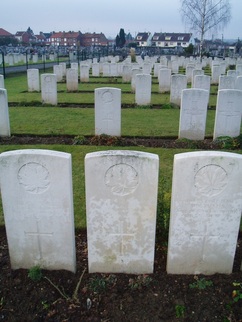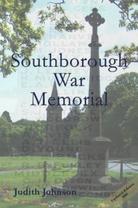
Southborough War Memorial was a labour of love. I had always wanted to set down the stories of some those people who had lost their lives in the World Wars, and I was no doubt inspired to get started on the task by a 21st century tragedy - that of New York's 9/11 terrorist attack. I had visited New York in April 2001 in connection with my job at that time, and had met with Janny Scott, writer on the New York Times.
Immediately after 9/11, if I recall rightly, it was Janny who suggested that the stories of the people who died in the Twin Towers might be honoured by interviewing their families, and writing up their stories. These appeared daily in the New York Times, and I read them every day online, and was very moved by them.
A substantial part of the first printing of Southborough War Memorial has now sold, and I am not planning to reprint, but I am really pleased that with the advent of online publishing, it has now been possible to make it available as an e-book. It is an interesting project to present in this way, as many of its pages have live links to other pages or websites, which are not possible in the printed version. I have also taken the opportunity to add new details that have come to my attention, eg on Ronald Moon, to correct the entry for William Roy McMillan, and include an entry for a name being added this year to the Memorial, that of Denis Livingstone McPhee. It will also ensure that the book and the names and what is known of those of our community who lost their lives will continue to be available in the years ahead and after the printed copies have been exhausted, thus fulfilling my main aim.
I was talking to a cousin from New Zealand yesterday, over for a family reunion, who has also, like me, found himself unofficially appointed the family archivist. It sounds rather grand - in my case it means having the old family photo albums piled in my attic! We agreed that you have to keep the focus very narrow, or family history, like local history, can mushroom
out of control. Certainly with Southborough War Memorial, with such a large number of names, I had to be disciplined about not going off on a tangent, however enticing the extra information being offered was.
In reading an excellent 'micro-history' of just one house in London, next to the Globe Theatre - The House by the Thames by Gillian Tindall, the following passage (quoted with permission from Pimlico) seemed particularly resonant:
“Indeed, this is a common experience of researchers who study the Census returns: you begin to feel the weight of all those spent, packed-away lives pressing in on you, as if innumerable stilled voices were yearning wordlessly for recognition. Almost any one of the names, you believe, might be rescued from the oblivion of time and brought forward in some recognisable shape and substance if you devoted time itself – enough time – to delving away in further archives, combing parish records and ancient rate books, speculatively ordering up birth and marriage certificates, browsing among probated Wills, running an eye down the meticulously handwritten accounts of long-extinct charities, bingeing on local newspapers full of ancient quarrels … But how much time? Many years of a current life, you begin to realise, could be expended on the excavation of a handful of these past lives: ultimately the desire to re-confer humanity and personality on the lost runs the risk of compromising life in the present.”
It is important to honour the dead, and to remember their sacrifices with gratitude, but it is also vital to give at least equal attention to the present, and to love the ones we're with.

 RSS Feed
RSS Feed
